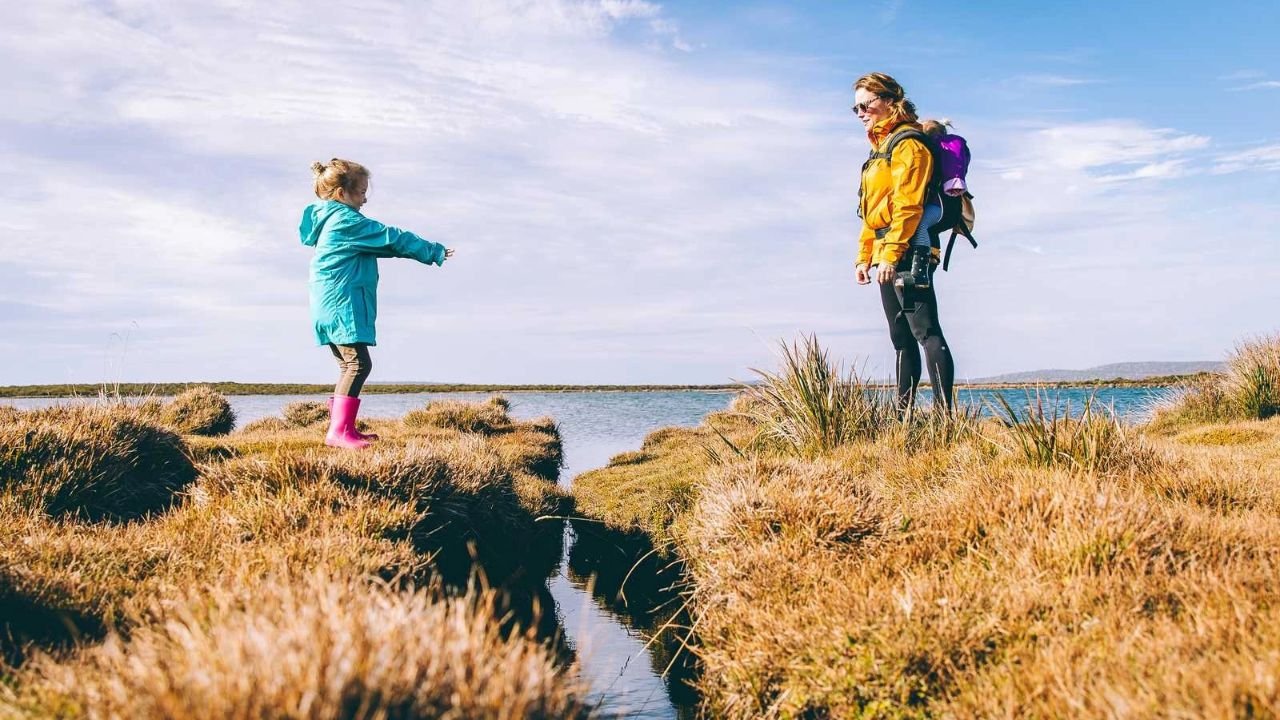Introduction
Traveling for the first time can be one of the most exciting experiences of your life. The thrill of exploring new destinations, tasting unfamiliar cuisines, and immersing yourself in different cultures can create memories that last a lifetime. However, for many first-time travelers, the journey is also fraught with unexpected challenges and mistakes that can dampen the experience.
Understanding the common pitfalls can help you prepare better, reduce stress, and maximize your enjoyment. This guide highlights the seven most frequent mistakes first-time travelers make and offers practical advice on how to avoid them, ensuring your adventure is smooth, safe, and truly rewarding.
1. Poor Planning and Lack of Research
The Mistake
One of the biggest errors first-time travelers make is underestimating the importance of thorough planning and research. They may book flights impulsively, skip understanding the local customs, or fail to map out key attractions and transportation options.
Why It Happens
- Excitement and eagerness to start the trip
- Overconfidence in spontaneity
- Limited knowledge about the destination
The Consequences
- Missing out on must-see sights
- Facing unexpected costs or logistical issues
- Being unprepared for local customs or safety concerns
How to Avoid It
- Research Your Destination: Learn about cultural norms, language basics, local transportation, and safety tips. Use reputable travel guides, official tourism websites, and traveler forums.
- Plan Your Itinerary: Create a flexible but organized plan that includes key attractions, local transportation options, and downtime.
- Book in Advance: Reserve accommodations and major activities ahead of time, especially during peak seasons.
- Learn Local Customs: Familiarize yourself with dress codes, tipping practices, and social etiquette to show respect and avoid faux pas.
- Prepare Necessary Documents: Ensure your passport, visas, travel insurance, and important IDs are in order.
Bonus Tips
- Use travel apps for navigation, translation, and local tips.
- Join travel communities online to get firsthand advice.
2. Overpacking or Underpacking
The Mistake
First-time travelers often bring too much, leading to heavy luggage, or too little, resulting in inadequate clothing or essentials.
Why It Happens
- Anxiety about missing items
- Lack of experience with packing efficiently
- Fear of not having enough in case of emergencies
The Consequences
- High baggage fees
- Difficulty carrying luggage
- Missing essential items like chargers, medications, or appropriate clothing
How to Avoid It
- Make a Packing List: Write down essentials based on the climate, activities, and trip duration.
- Pack Versatile Clothing: Choose items that can be mixed and matched; prioritize lightweight, quick-drying fabrics.
- Follow the 1-2-3 Rule: Pack only what fits into a carry-on if possible, and aim for minimal items.
- Use Packing Cubes: Organize your belongings efficiently.
- Research the Weather: Check forecasts to pack appropriate clothing.
- Leave Space: Avoid overstuffing; leave room for souvenirs or shopping.
Bonus Tips
- Pack an emergency kit with basic medicines, chargers, and copies of important documents.
- Remember that laundry services are often available if you run out of clothes.
3. Ignoring Safety Precautions
The Mistake
Many first-time travelers underestimate safety risks, neglect travel advisories, or ignore basic precautions.
Why It Happens
- Overconfidence or assumption that “nothing will happen”
- Lack of awareness about local dangers
- Rushing or not paying attention
The Consequences
- Theft, scams, or loss of belongings
- Personal injury or health issues
- Legal problems or unsafe situations
How to Avoid It
- Stay Informed: Check travel advisories from your government and local news.
- Secure Your Belongings: Use locks, keep valuables in hotel safes or concealed bags.
- Be Aware of Scams: Learn common scams in your destination and stay vigilant.
- Avoid Risky Areas: Stay in well-lit, populated places, especially at night.
- Health Precautions: Get necessary vaccinations, carry hand sanitizer, and drink bottled water if advised.
- Travel Insurance: Obtain comprehensive coverage for health, theft, or trip cancellations.
- Share Your Plans: Let a trusted person know your itinerary and check-in regularly.
Bonus Tips
- Carry a small first aid kit.
- Learn basic phrases for emergencies in the local language.
4. Poor Budget Management
The Mistake
First-time travelers often either overspend, leading to financial stress, or underspend, missing out on experiences.
Why It Happens
- Lack of prior budgeting
- Not accounting for hidden costs
- Impulsive spending
The Consequences
- Running out of money mid-trip
- Stress and anxiety
- Inability to afford planned activities
How to Avoid It
- Set a Realistic Budget: Include accommodation, food, transportation, activities, souvenirs, and emergency funds.
- Research Costs: Know average prices for meals, transport, and attractions.
- Use Budgeting Apps: Track expenses in real time.
- Prioritize Spending: Allocate funds for must-see attractions or experiences.
- Use Local Currency: Avoid unfavorable exchange rates or extra fees by withdrawing cash locally.
- Limit Impulse Purchases: Make deliberate decisions on souvenirs and extras.
Bonus Tips
- Look for free or low-cost activities.
- Consider travel passes or city cards for discounts.
5. Failing to Respect Local Cultures and Etiquette
The Mistake
Disregarding customs, dress codes, or social norms can offend locals and create uncomfortable situations.
Why It Happens
- Lack of research
- Assumption that Western norms apply everywhere
- Impatience or ignorance
The Consequences
- Offending residents
- Being denied entry or service
- Damaging your reputation as a respectful traveler
How to Avoid It
- Learn Cultural Norms: Understand dress codes, greetings, tipping, and social behaviors.
- Dress Appropriately: Cover shoulders, knees, or head if required.
- Respect Religious Sites: Follow rules, remove shoes if asked, and behave respectfully.
- Ask Before Taking Photos: Especially of people or sacred sites.
- Use Respectful Language: Avoid insensitive comments or gestures.
- Support Local Practices: Participate respectfully in traditions or festivals.
Bonus Tips
- Observe how locals behave and emulate their respectful behaviors.
- Carry a small guidebook or app about cultural etiquette.
6. Over-Reliance on Technology and Poor Navigation
The Mistake
Many first-time travelers depend heavily on smartphones, GPS, or internet, which can lead to problems if devices fail or connectivity is lost.
Why It Happens
- Overconfidence in technology
- Lack of offline planning
- Inexperience navigating unfamiliar places
The Consequences
- Getting lost
- Missing important appointments or attractions
- Increased stress and frustration
How to Avoid It
- Download Offline Maps: Google Maps, Maps.me, or city maps before your trip.
- Carry Physical Maps and Guides: Especially in areas with poor connectivity.
- Note Key Locations: Write down addresses, transportation info, or landmarks.
- Save Important Contacts: Local emergency numbers, hotel info.
- Learn Basic Navigation Skills: Recognize landmarks and local transportation systems.
- Have Backup Power: Carry portable chargers.
Bonus Tips
- Learn a few key phrases in the local language to ask for directions.
- Use local SIM cards if possible for better connectivity.
7. Underestimating the Value of Travel Insurance
The Mistake
Many first-time travelers skip travel insurance, thinking it’s unnecessary or an added expense.
Why It Happens
- Overconfidence or thinking “nothing will happen”
- Lack of understanding about potential risks
- Cost concerns
The Consequences
- Significant out-of-pocket expenses for medical emergencies, cancellations, or lost belongings
- Stress during unforeseen events
- Limited options for support in emergencies
How to Avoid It
- Purchase Comprehensive Travel Insurance: Covering health, trip cancellations, lost luggage, and emergencies.
- Read the Fine Print: Understand what’s covered and any exclusions.
- Keep Emergency Numbers Handy: Insurance provider contact info, local hospitals, embassy.
- Carry Copies of Documents: Insurance policy, passport, visas, and emergency contacts.
Bonus Tips
- Check if your existing health insurance provides international coverage.
- Consider specialized policies if engaging in adventure sports or high-risk activities.
Conclusion
Traveling for the first time is an exciting adventure filled with new experiences and personal growth. However, it also comes with a learning curve, and even seasoned travelers make mistakes. By understanding and avoiding these seven common errors—poor planning, over/underpacking, neglecting safety, mismanaging budgets, cultural insensitivity, over-reliance on technology, and skipping travel insurance—you can significantly enhance your trip.
Preparation, research, respectful behavior, and a flexible mindset are your best tools for a successful journey. Remember, every mistake is a learning opportunity, and with each trip, you’ll become more confident, responsible, and savvy traveler.
So pack wisely, plan thoughtfully, stay safe, and immerse yourself fully in the wonder of exploration. Happy travels!

